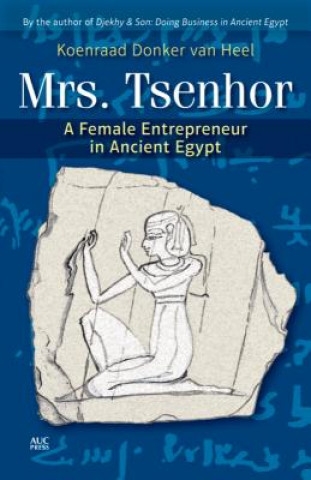
Kod: 05063126
Mrs Tsenhor
Autor Koenraad Donker Van Heel
Tsenhor was born about 550 B C E in the city of Thebes (Karnak). She died some sixty years later, having lived through the reigns of Amasis II, Psamtik III, Cambyses II, Darius I and perhaps even Psamtik IV. By carefully retracing ... więcej
- Język:
 Angielski
Angielski - Oprawa: Twarda
- Liczba stron: 256
Wydawca: The American University in Cairo Press, 2014
- Więcej informacji o książce

77.36 zł
Zwykle: 83.23 zł
Oszczędzasz 5.87 zł

Dostępna u dostawcy w małych ilościach
Wysyłamy za 10 - 14 dni
Potrzebujesz więcej egzemplarzy?Jeżeli jesteś zainteresowany zakupem większej ilości egzemplarzy, skontaktuj się z nami, aby sprawdzić ich dostępność.
Dodaj do schowka
Zobacz książki o podobnej tematyce
Bon podarunkowy: Radość gwarantowana
- Podaruj bon o dowolnej wartości, a my się zajmiemy resztą.
- Bon podarunkowy dotyczy całej naszej oferty.
- Możesz wydrukować elektroniczny bon z e-maila a następnie przekazać go obdarowanemu.
- Ważność bonu wynosi 12 miesięcy od daty wystawienia.
Więcej informacji o Mrs Tsenhor
Za ten zakup dostaniesz 45 punkty
 Opis
Opis
Tsenhor was born about 550 B C E in the city of Thebes (Karnak). She died some sixty years later, having lived through the reigns of Amasis II, Psamtik III, Cambyses II, Darius I and perhaps even Psamtik IV. By carefully retracing the events of her life as they are recorded in papyri now kept in museums in London, Paris, Turin, and Vienna, the author creates the image of a proud and independent businesswoman who made her own decisions in life. If Tsenhor were alive today she would be wearing jeans, drive a pick-up, and enjoy a beer with the boys. She clearly was her own boss, and one assumes that this happened with the full support of her second husband Psenese, who fathered two of her children. She married him when she was in her mid-thirties. Tsenhor - - who was probably named after her father's most important client - - was a working wife. Like her father and husband, she could be hired to bring offerings to the dead in the necropolis on the west bank of the Nile. For a fee of course, and that is how her family acquired high-quality farm land on more than one occasion. But Tsenhor also did other business on her own, such as buying a slave and co-financing the reconstruction of a house that she owned together with Psenese. When Tsenhor decided to divide her inheritance, her son and daughter each received an equal share. Even the papyri proving her children's rights to her inheritance were cut to equal size, as if to underline that in her household boys and girls had exactly the same rights. Tsenhor seems in many ways to have been a liberated woman, some 2,500 years before the concept was invented. Embedded in the history of the first Persian occupation of Egypt, and using many sources dealing with ordinary women from the Old Kingdom up to and including the Coptic era, this book aims to forever change the general view on women in ancient Egypt, that is far too often based on the lives of Nefertiti, Hatshepsut, and Cleopatra.
 Szczegóły książki
Szczegóły książki
Kategoria Książki po angielsku Humanities History History: earliest times to present day
77.36 zł
- Pełny tytuł: Mrs Tsenhor
- Podtytuł: A Female Entrepreneur in Ancient Egypt
- Autor: Koenraad Donker Van Heel
- Język:
 Angielski
Angielski - Oprawa: Twarda
- Liczba stron: 256
- EAN: 9789774166341
- ID: 05063126
- Wydawca: The American University in Cairo Press
- Waga: 626 g
- Wymiary: 150 × 230 × 24 mm
- Data wydania: 30. May 2014
Ulubione w innej kategorii
-
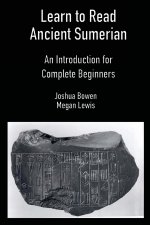
Learn to Read Ancient Sumerian
150.67 zł -

Russian Journal
61.73 zł -23 % -
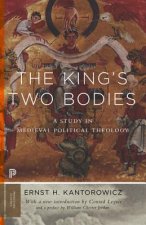
King's Two Bodies
121.33 zł -8 % -

Heart of Europe
89.45 zł -23 % -

Armies of Castile and Aragon 1370-1516
68.33 zł -15 % -

One Hell of a Gamble
128.95 zł -9 % -
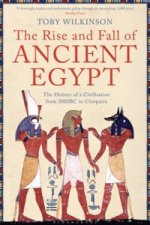
Rise and Fall of Ancient Egypt
80.31 zł -23 % -

Guns, Germs, and Steel
46.50 zł -9 % -

The Origins of Totalitarianism
46.50 zł -19 % -

Illustrated Encyclopedia of Uniforms of World War I
93.91 zł -23 % -

The Art of Combat
138.29 zł -4 % -
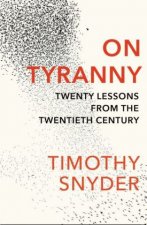
On Tyranny
46.50 zł -19 % -
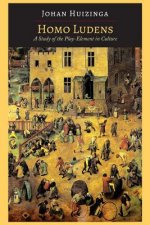
Homo Ludens
54.01 zł -

Tuesdays With Morrie
46.50 zł -19 % -

History of the Decline and Fall of the Roman Empire
61.73 zł -23 % -

King Leopold's Ghost
52.38 zł -23 % -

Meditations
43.96 zł -8 % -

Streams of Gold, Rivers of Blood
150.37 zł -
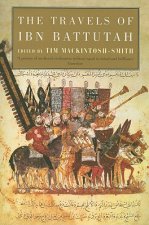
Travels of Ibn Battutah
52.38 zł -23 % -

Augustus
70.97 zł -23 % -

Age Of Capital
70.97 zł -23 % -
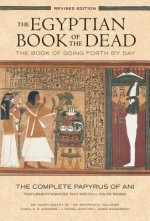
Egyptian Book of the Dead: The Book of Going Forth by Day : The Complete Papyrus of Ani Featuring Integrated Text and Full-Color Images (History ... M
140.83 zł -8 % -

Deng Xiaoping and the Transformation of China
121.43 zł -8 % -

Age Of Extremes
75.23 zł -19 % -

John Skylitzes: A Synopsis of Byzantine History, 811-1057
179.31 zł -9 % -

Arms and Armour of Late Medieval Europe
47.71 zł -23 % -

Alexander the Great
79.90 zł -13 % -

End of Days
33.90 zł -23 % -

Shake Hands With The Devil
61.73 zł -23 % -

Complete Roman Army
93.91 zł -23 % -

Distant Mirror
61.73 zł -23 % -

Fall of the Roman Empire
90.46 zł -9 % -

Fifties
90.46 zł -9 % -

After the Ice
80.31 zł -23 % -

Histories
22.53 zł -29 % -

Savage Continent
70.97 zł -23 % -

Oxford IB Diploma Programme: The Cold War: Superpower Tensions and Rivalries Course Companion
216.47 zł -

Age Of Empire
70.97 zł -23 % -

Pompeii
52.38 zł -23 % -

Life in a Cave
27.30 zł -15 % -

Oxford Illustrated History of Prehistoric Europe
170.27 zł -9 % -

On the Ocean
189.77 zł -

Flowers of Battle The Complete Martial Works of Fiore dei Liberi Vol 1
604.26 zł -

On Ancient Warfare
175.96 zł -7 % -

Access to History for the IB Diploma: Causes and effects of 20th-century wars Second Edition
134.63 zł -15 % -

Safe Area Gorazde
89.45 zł -23 % -

Yoga Body
82.74 zł -8 % -

Fear and Loathing on the Campaign Trail '72
61.73 zł -23 % -

Fall of Carthage
70.97 zł -23 %
zadowolonych klientów
Od roku 2008 obsłużyliśmy wielu miłośników książek, ale dla nas każdy był tym wyjątkowym.
Copyright! ©2008-24 libristo.pl Wszelkie prawa zastrzeżonePrywatnieCookies



 21 milionów książek
21 milionów książek Dostawa 10.99 zł
Dostawa 10.99 zł (32) 444 93 66 (8-15.30h)
(32) 444 93 66 (8-15.30h)